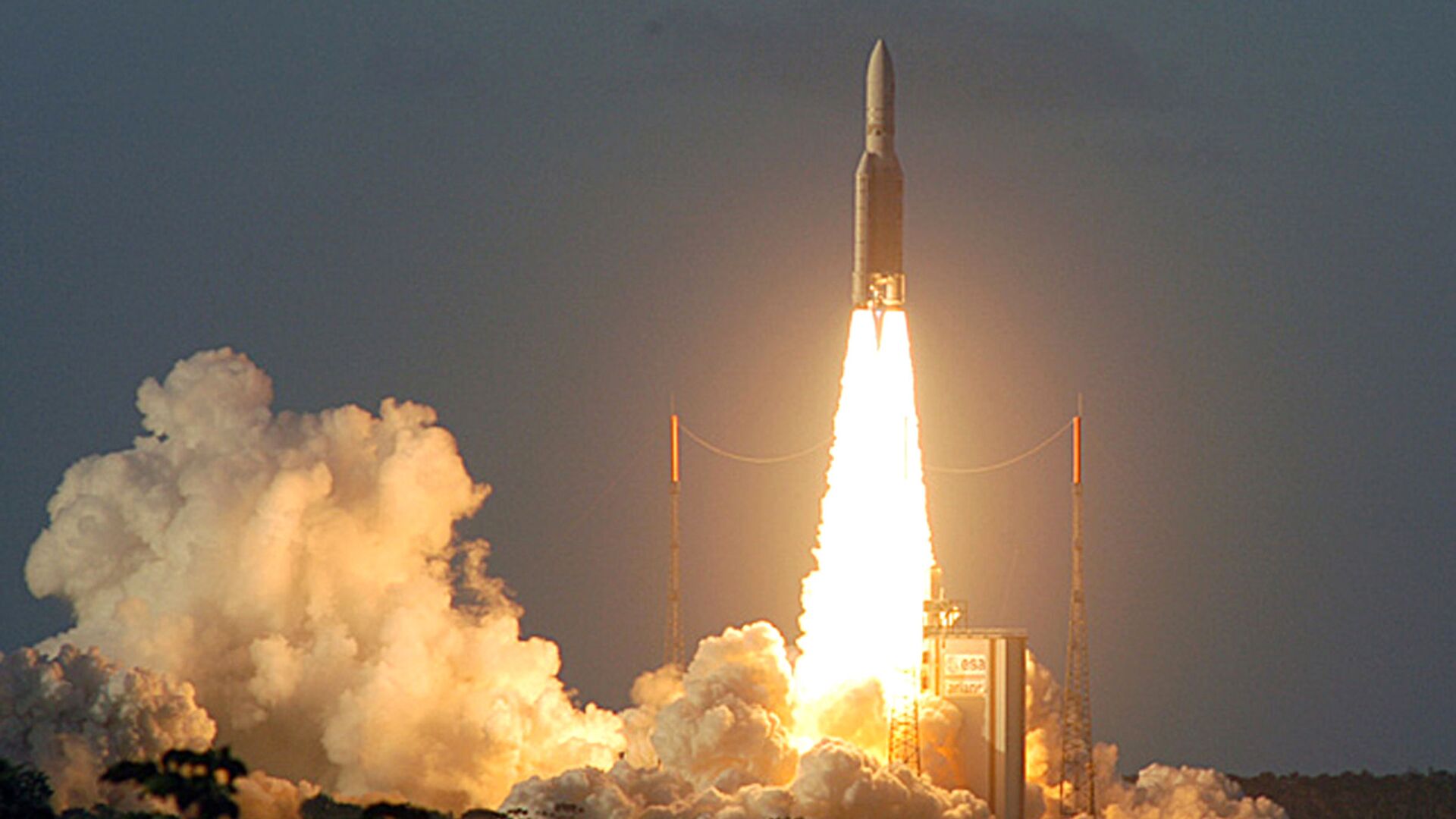https://sputnikglobe.com/20221121/berlin-and-paris-braced-to-outperform-musks-spacex-1104500881.html
Berlin and Paris Braced to Outperform Musk's SpaceX
Berlin and Paris Braced to Outperform Musk's SpaceX
Sputnik International
Germany has reportedly decided to return to developing French new-generation launcher Ariane 7, which looks to compete with the latest rockets from Elon Musk's... 21.11.2022, Sputnik International
2022-11-21T17:50+0000
2022-11-21T17:50+0000
2022-11-21T17:50+0000
elon musk
airbus
space race
nasa
science & tech
https://cdn1.img.sputnikglobe.com/img/07e4/08/0e/1080173618_0:121:1900:1190_1920x0_80_0_0_20ee232df00339f2b769de482fa5570c.jpg
Berlin will purportedly back future projects from the ArianeGroup - a joint aerospace venture of Airbus SE and Safran SA, media reports suggest, quoting sources familiar with the matter. The reported backing comes with the condition that the projects must be open to technology from European startups. The cooperation is yet to be officially confirmed but is seemingly aimed at the creation of the Ariane 7 launcher in direct competition with Elon Musk's SpaceX and its Falcon 9 launch vehicle.According to analyst data, Musk's Falcon 9 has accounted for 33% of all commercial space launches during 2022, while the French Ariane 5 rocket accounted only for 1%. The unveiling of Ariane 6 - designed to give Europe an upper hand in competition - has been delayed many times with its first blast-off now scheduled for the end of 2023. Ariane rockets provide the EU with an independent launch capability for satellites and space missions. Nonetheless, Musk's Falcon 9 is winning market share in commercial space launches - especially communication satellite missions, largely because the launcher is reusable, granting SpaceX a cost advantage over rival companies with expendable launchers.Nearly a week ago, NASA launched its Artemis 1 mission to send the Orion capsule on a journey to the Moon. Experts and media have speculated that the US government agency is now back into the Moon race, despite the SLS launch being delayed several times. However, US economists have questioned the program, since it is estimated to consume around $90 billion of taxpayer's money by the end of 2025.
Sputnik International
feedback@sputniknews.com
+74956456601
MIA „Rosiya Segodnya“
2022
News
en_EN
Sputnik International
feedback@sputniknews.com
+74956456601
MIA „Rosiya Segodnya“
Sputnik International
feedback@sputniknews.com
+74956456601
MIA „Rosiya Segodnya“
nasa, musk, spacex, falcon 9, rocket
nasa, musk, spacex, falcon 9, rocket
Berlin and Paris Braced to Outperform Musk's SpaceX
Germany has reportedly decided to return to developing French new-generation launcher Ariane 7, which looks to compete with the latest rockets from Elon Musk's Space Exploration Technologies.
Berlin will purportedly back future projects from the ArianeGroup - a joint aerospace venture of
Airbus SE and
Safran SA, media reports suggest, quoting sources familiar with the matter.
The reported backing comes with the condition that the projects must be open to technology from European startups.
The cooperation is yet to be officially confirmed but is seemingly aimed at the creation of the Ariane 7 launcher in direct competition with Elon Musk's SpaceX and its Falcon 9 launch vehicle.
According to analyst data,
Musk's Falcon 9 has accounted for 33% of all commercial space launches during 2022, while the French Ariane 5 rocket accounted only for 1%. The unveiling of Ariane 6 - designed to give Europe an upper hand in competition - has been delayed many times with its first blast-off now scheduled for the end of 2023.
Ariane rockets provide the EU with an independent launch capability for satellites and space missions. Nonetheless, Musk's Falcon 9 is winning market share in commercial space launches - especially communication satellite missions, largely because the launcher is reusable, granting SpaceX a cost advantage over rival companies with expendable launchers.
Nearly a week ago,
NASA launched its Artemis 1 mission to send the Orion capsule on a journey to the Moon. Experts and media have speculated that the US government agency is now back into the Moon
race, despite the SLS launch being delayed several times. However, US economists have questioned the program, since it is estimated to consume around $90 billion of taxpayer's money by the end of 2025.



